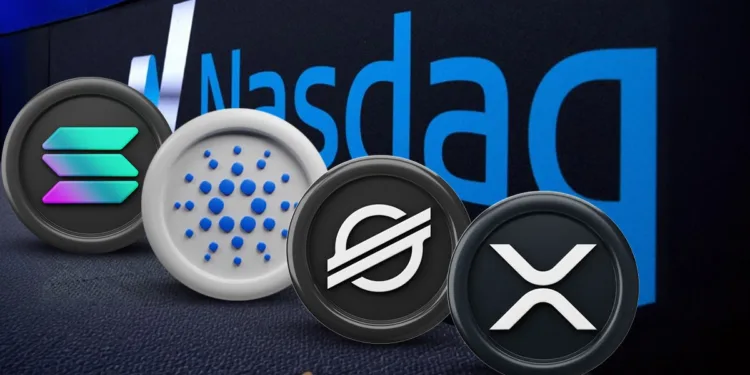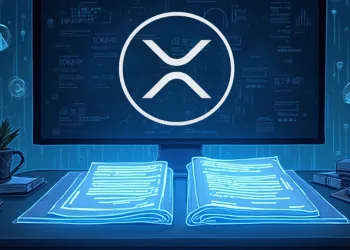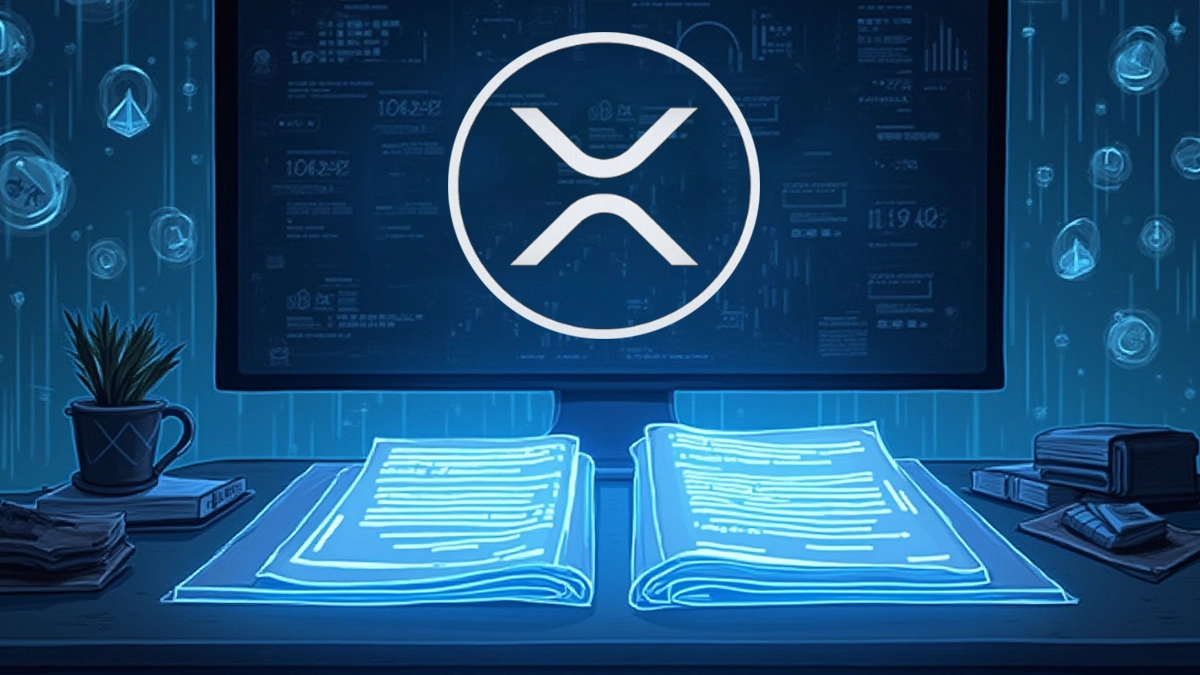- Nasdaq expanding its index which is approved by the SEC, points to more fiat system acceptance of certain altcoins.
- Inclusion of SOL, ADA, XLM, and XRP may clear the path for future spot ETFs tracking these digital assets.
- Nasdaq’s move strengthens market benchmarks, suggesting altcoin markets have reached sufficient liquidity and transparency thresholds.
In a development embraced by crypto investors, the United States Securities and Exchange Commission (SEC) has given its approval to an update of Nasdaq’s Crypto US Settlement Price Index (NCIUS). Starting June 2, 2025, the index will include four major altcoins — Solana (SOL), Cardano (ADA), Stellar Lumens (XLM), and XRP Ledger (XRP) — in a milestone that has the potential to change the image of digital assets in mainstream finance.
Nasdaq’s decision to expand the NCIUS follows the index’s recent reconstitution, which originally included Bitcoin (BTC) and Ethereum (ETH). The new edition now officially brings the total digital assets in the index to four, as a more diversified benchmark for institutional and retail investors tracking U.S.-regulated crypto prices. In its announcement, Nasdaq stated that the addition would render the index more relevant and representative of the pricing in today’s crypto environment.
SEC Approval Sparks Altcoin ETF Hopes
The SEC’s approval of this updated index signals a growing regulatory confidence in the liquidity and price integrity of the selected altcoins. Market observers believe this move removes a critical barrier to future spot-based crypto exchange-traded funds (ETFs). Analysts have drawn comparisons to the earlier pathways taken by Bitcoin and Ethereum, both of which had ETF products approved following index inclusion. Given this precedent, expectations are rising that ETFs based on these four altcoins could be considered in the coming months.
SEC Reconstitution Signals Growing Trust in Altcoin Market Maturity
By recognizing SOL, ADA, XLM, and XRP as suitable for regulated indexing, the SEC indirectly validates their pricing data and market maturity. Reconstitution is a shift from how U.S. regulators assess altcoins, abandoning speculative concerns to measurable factors like liquidity, market depth, and price transparency. The effect of the transition is to have extensive implications not just in conventional finance but also in crypto markets.
Regulatory Shift Paves Way for Broader Crypto Integration
The announcement is widely seen as a step toward broader crypto adoption within regulated U.S. financial systems. It potentially opens the door to greater institutional involvement, not just through index funds, but also via spot ETF structures. Although no immediate ETF filings have been confirmed, industry participants expect follow-up applications, especially from asset managers monitoring regulatory developments closely.
With the NCIUS now encompassing six cryptocurrencies, investors and institutions will watch closely for subsequent moves by the SEC. If trends follow those seen with Bitcoin and Ethereum, ETF approval could occur within 12 months. The coming weeks may see a wave of filings, as fund providers seek to capitalize on new opportunities tied to this regulatory shift.














